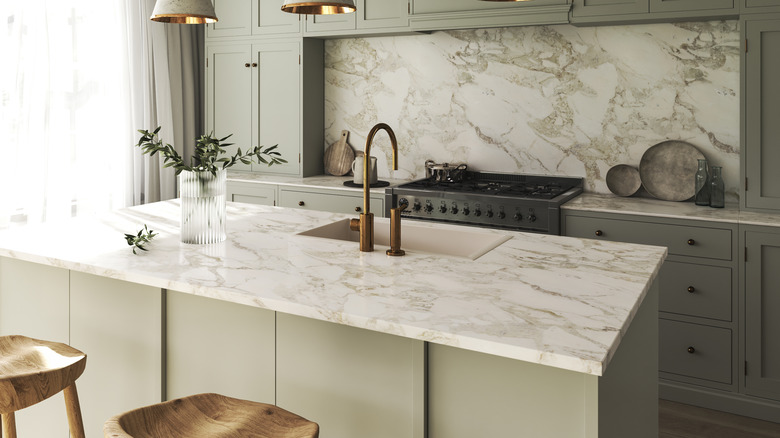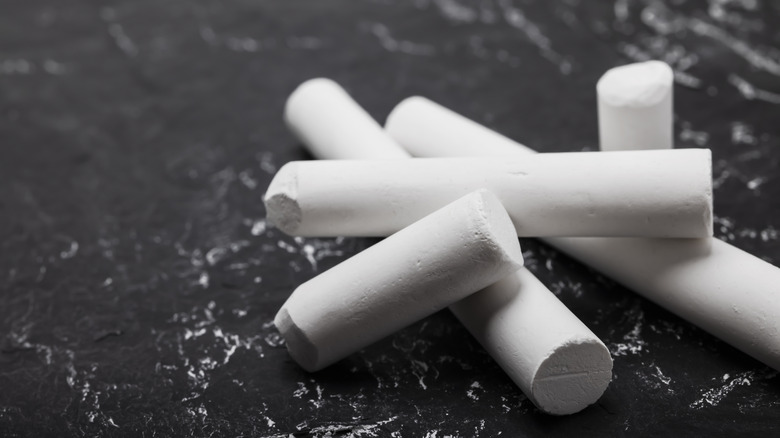The Chalk Hack People Use To Bring Shine Back To Marble (& Does It Actually Work?)
Marble countertops, marble flooring, and other types of marble home features can look amazing and give your home a unique allure that it wouldn't have otherwise. Despite this, marble surfaces can lose some of their appeal over time. Marble is porous and soft, so scratching and staining can become problems as time goes by. You'll need to avoid specific mistakes if you have marble countertops, such as cutting on the counter or letting it come into contact with acidic substances and cleaners like lemon juice and vinegar. You'll also need to do some maintenance and polish your marble to ensure it continues looking its best.
Chalk is actually a great tool that you can use to polish your marble, as it offers the ideal mix between abrasiveness and gentleness. It's well-suited to polishing marble since it's a fine pumice that won't scratch the material. Keep in mind that marble and chalk are both forms of calcium carbonate. They're both comprised of carbonates such as limestone, which means that, when you polish marble with chalk, you can also replenish some of the material and help it retain its attractive look. If you're thinking about polishing your marble with chalk, however, you'll want to be sure to do it correctly.
How to polish your marble with chalk
To polish and replenish your marble with chalk, you'll want to start by crushing it and making it into a powder. You can then grab a damp cloth or sponge and use it to apply the chalk directly to the marble. Ideally, use a microfiber cloth. However, make sure that you don't use too much force when applying the chalk powder — do it gently. Aim to use long, straight strokes that overlap rather than going in circles. You may need to dip your cloth back into the powder again from time to time before the job is done.
Once you've completed buffing the marble, you can then grab another damp cloth and rinse it with cold water. Use the cloth to remove any bits of chalk that remain. To ensure that your marble surface remains well-protected, consider sealing it with a marble sealer after you're done polishing it. Sealing your marble countertops regularly can help increase their lifespan and ideally should be done every three to six months.

